A production gap at Hitachi’s Newton Aycliffe rolling stock assembly plant has been filled by an order for 14 five-car trainsets for use by FirstGroup on existing and approved open access services, with an option for a further 13 sets if regulatory approval is given for further new routes.
It resolves the need for Hitachi to mothball its production line until the assembly of HS2 rolling stock starts.
A production gap at Hitachi’s Newton Aycliffe rolling stock assembly plant has been filled by an order for 14 five-car trainsets for use by FirstGroup on existing and approved open access services, with an option for a further 13 sets if regulatory approval is given for further new routes.
It resolves the need for Hitachi to mothball its production line until the assembly of HS2 rolling stock starts.
The need for vehicles follows First’s acquisition of the Grand Union company that holds access rights to start new services between Stirling and Euston and between Carmarthen and Paddington. The initial agreement was finalised in August, with the South Wales services following in December, ending uncertainty about the provision of rolling stock to operate the agreed timetable.
The earlier expectation was that Super Voyager trainsets displaced from Avanti West Coast or Meridian vehicles being replaced by East Midlands Railway would be the source of rolling stock.
However, an issue with both these options is that the trainsets are not fitted with Advanced Train Protection (ATP), which continues in use on the Great Western Main Line.
This resulted in an agreement with Network Rail that new trains suitable for 125mph running would be provided. This is likely to have created a funding issue for the original promoters of the service, as although the trains are leased it is necessary to provide a guarantee about the future ability to pay the rental for the contract period.
By acquiring both operations, FirstGroup was in a position to agree the financing package negotiated with Angel Trains, which will purchase the trains.
Both Hull Trains and Lumo are operated by FirstGroup, and both have made a strong recovery from the effect of COVID travel restrictions.
The two operators use rolling stock supplied by Hitachi - bi-modes in the case of Hull Trains, while Lumo uses only electric power as the route between King’s Cross and Edinburgh is fully electrified.
A number of services are already being strengthened to ten-car working, and additional sets will enable further diagrams to be enhanced.
Hull Trains is planning an expansion of services to serve Sheffield, which is a throwback to the original proposal tabled by the company to split trains at Retford so that both destinations were served.
This was rejected on regulatory grounds, as the St Pancras-Sheffield flow qualified for protection from competition under the regime that then existed. At the time, there were also concerns about the use of permissive block, which is the signalling system used to enable sets to be split and joined.
Lumo also has ambitions to extend services to Glasgow, which was served from the East Coast Main Line before the West Coast upgrade and the introduction of Pendolino services.
LNER has now withdrawn this connectivity, which creates the opportunity for the Lumo product to be extended - restoring competition to the services operated by Avanti West Coast.
The business model adopted for Lumo operations is clearly favoured by FirstGroup, which intends to use the brand on newly acquired future services from London to destinations in Scotland and South Wales. Trains offer one class of accommodation with a trolley service throughout the train.
It is not inconceivable that all FirstGroup open access operations will move to this brand, although that would require some soul-searching as far as Hull Trains is concerned.
HT celebrates its 25th anniversary in September 2025, and provides what might be described as a full service offer, with First Class accommodation and meals at seat as well as trolley provision.
Meanwhile, the government is ploughing ahead with the plan to terminate the National Rail Contracts held by the former franchised operators as they expire.
The legislation to do this is now in place, and during 2025 South Western Railway, Greater Anglia and c2c will be taken over by DfT Operator Ltd, which has replaced the government’s Operator of Last Resort Holdings Ltd that had previously managed the former LNER, Northern, Southeastern and TransPennine Express franchises.
In terms of organisation, the template has been to continue with the existing management teams. Unsurprisingly, this has resulted in little change from what has gone before, other than fleet simplification taking place at TPE with the withdrawal of locomotive-hauled sets.
The aim is to improve reliability by reducing the need for training, and to cut costs by operating a less complex fleet. Inevitably, there has been the consequence of severe overcrowding as the inadequate (in terms of capacity) Class 185 multiple units are used as substitutes.
It is unlikely that the current arrangements will last long. For starters, the DfT Operator structure will migrate to the new Great British Railways organisation, which is expected to come into being during 2026.
Protagonists who think this is nationalisation, similar to the creation of the British Transport Commission and Railway Executive at the start of 1948, are going to see something very different.
Then, the ‘Big Four’ railway companies, together with some secondary concerns, were divided into six regions. Apart from this separation, the boundaries were largely unchanged with operating practices continuing as before.
The merger of Network Rail and the train operating companies will be a much more challenging organisational change that must reflect the needs of the independent freight companies and the devolved administrations who have defined their own rail strategies, which include the use of operating concessions.
For example, Transport for London has awarded a new concession to operate the Elizabeth line, with the incumbent Hong Kong-based MTR being replaced by GTR Rail Operations - a consortium comprising the Go-Ahead Group, Tokyo Metro, and the Sumitomo Corporation.
TfL is continuing this format for the London Overground operated by Arriva Rail London, and is pressing the Shadow GBR team to transfer further routes within Greater London to its control.
Outside London, Merseyrail is operated as a concession by a joint venture between Serco and the Transport UK Group (formerly Abellio), on behalf of the Liverpool City Region Combined Authority, while both ScotRail and Transport for Wales services are directly managed by the respective devolved governments.
The number of elected mayors is also set to increase. And with responsibility for integrating public transport, it is likely that fewer services in larger conurbations will be under the control of GBR.
Login to continue reading
Or register with RAIL to keep up-to-date with the latest news, insight and opinion.



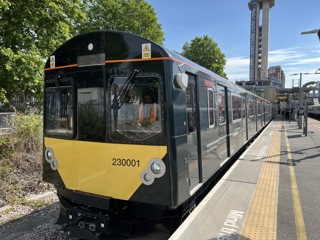
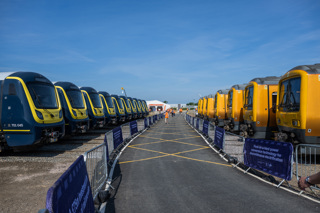
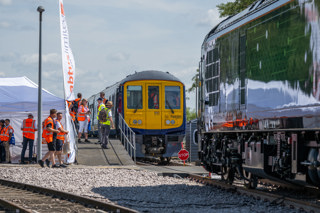
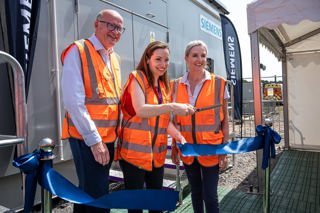
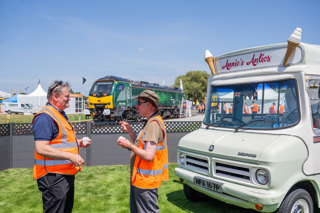











Login to comment
Comments
No comments have been made yet.